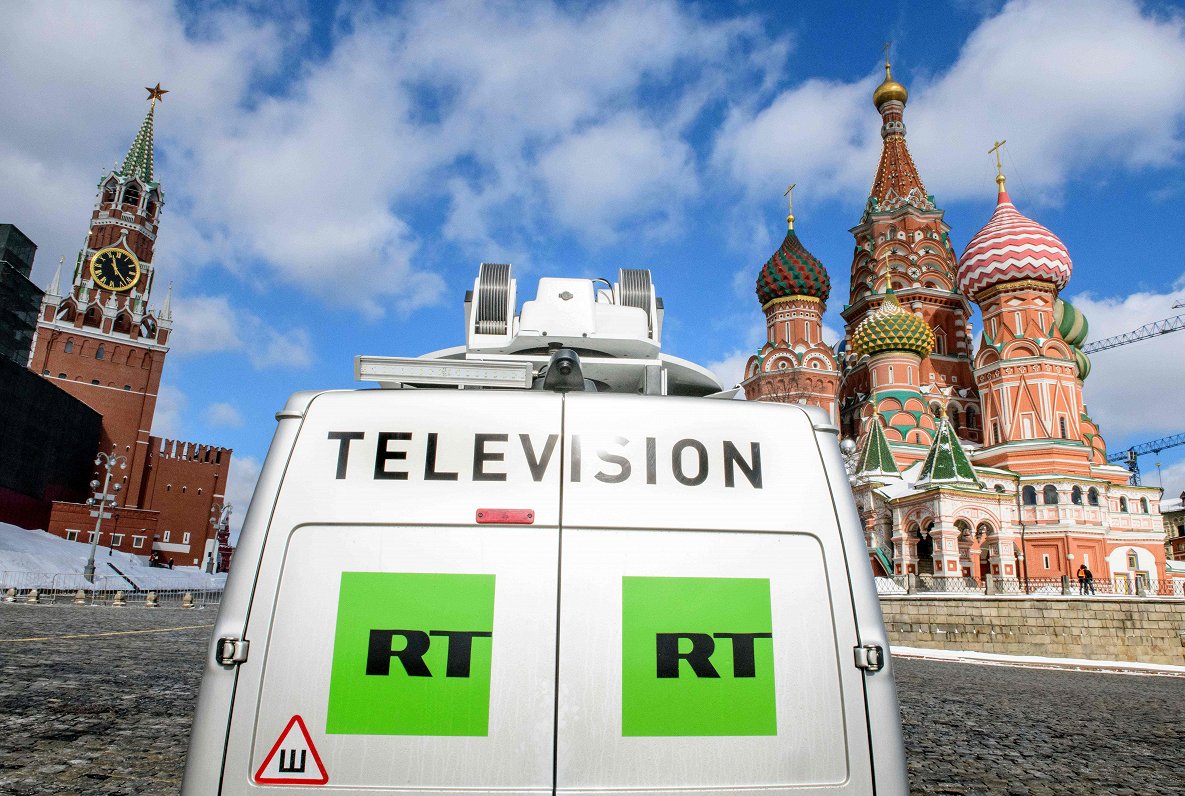According to RSF, the justification used by Latvia's media regulator to take RT off the air is shaky.
As previously reported by LSM, the National Electronic Mass Media Council of Latvia (NEPLP) banned the broadcasting of RT’s seven channels on 6 July, saying that this constituted implementation of EU sanctions imposed in 2014 on high-profile broadcaster Dmitry Kiselev, who is, in addition to his capacity of the head of Russian news agency Rossiya Segodnya, in control of RT.
The NEPLP’s call for all EU member countries to apply sanctions on the same grounds was quickly taken up by Lithuania, which announced on 8 July that it was going to ban the broadcasting of five RT channels.
However, according to RSF, EU sanctions should not be applied in this way, despite the toxic and tendentious nature of RT's output.
"While it is legitimate to defend and promote independent and reliable news reporting, RSF regards these closures as a misuse of the EU sanctions policy. Banning or closing media is not part of the sanctions adopted against Kiselev. Regardless of the aggressiveness of Russian propaganda in Europe, EU sanctions are not a legitimate or appropriate tool for combating it," RSF said.
"Rather than banning media outlets on loose grounds and on a flimsy legal basis, countries can require all media to guarantee editorial independence and can then impose legitimate sanctions, subject to judicial control, when it is established that media outlets have not complied with their obligations. Imposing the same requirements on all media outlets (regardless of their country of origin) makes it possible to avoid retaliatory measures from countries waging information wars," RSF recommended.
The full statement can be read online, as can the NEPLP's original justification for its actions.
The NEPLP came to its decision after noticing something others seemed to have missed: that the sanctioned Kiselyov was the de facto head of the broacaster's prent company, saying:
The owner/holder of the rights of "RT" television programmes is a company “TV-Novosti” which was founded on April 6, 2005. The sole founder (shareholder) of “TV-Novosti” is federal unitary state company "International Information Agency of Russia "RIA Novosti"" (hereinafter – “RIA Novosti”) which since December 20, 2013 has been in the stage of liquidation. The head of the liquidation commission of “RIA Novosti” is the citizen of the Russian Federation, Dmitry Kiselyov, who is the sole person having the right to act on behalf of the company without the authorisation. Having regard to the aforementioned, it can be concluded that Dmitry Kiselyov actually implements the control over “RIA Novosti”, its assets, financial resources and economic resources as well as actual operation of “RIA Novosti” in the process of its liquidation.
































